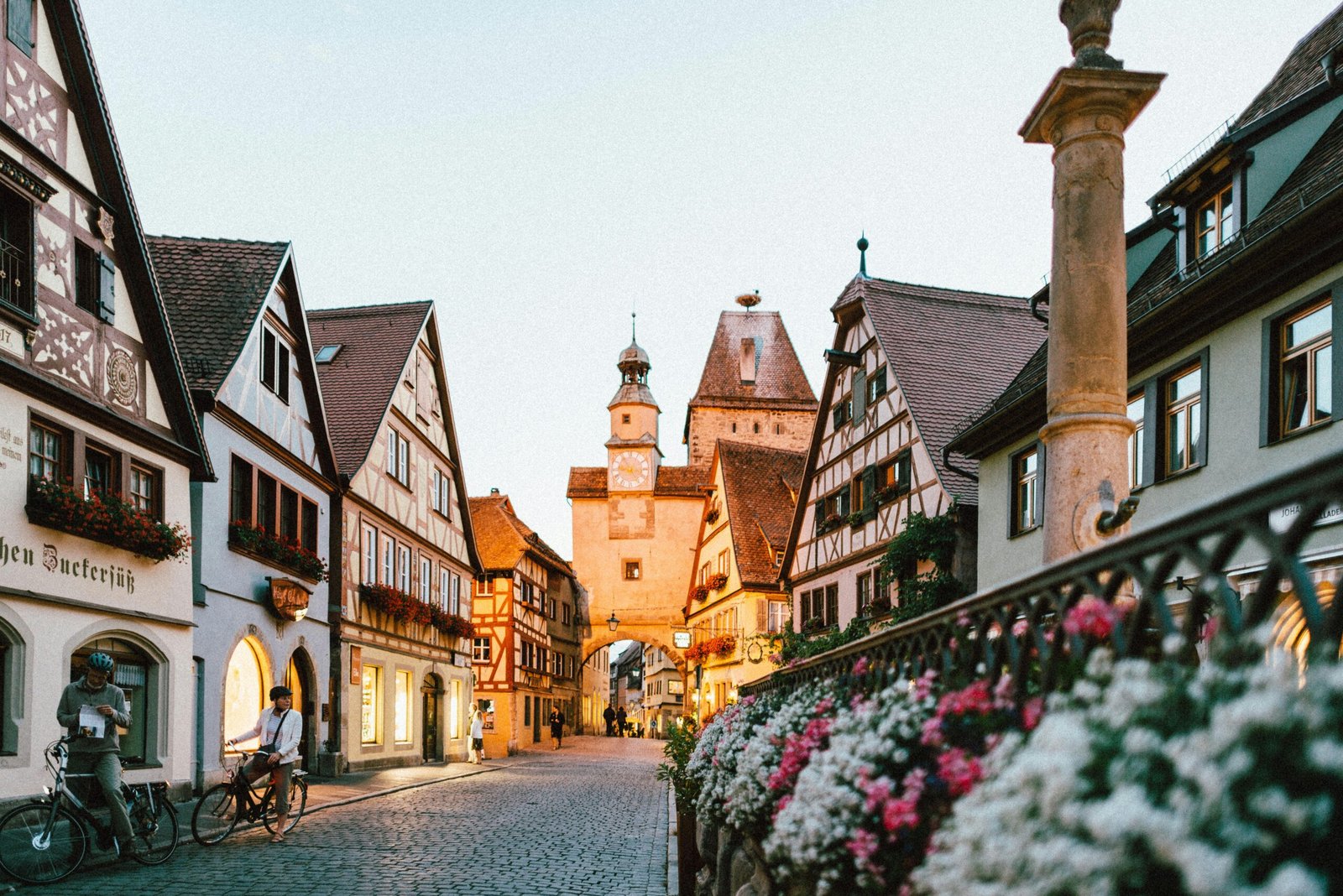Introduction
Welcome to Germany, a country known for its rich history, diverse culture, and stunning natural landscapes. Located in the heart of Europe, Germany offers a unique blend of modernity and tradition, making it an ideal destination for visitors from around the world. In this guide, we will provide you with all the essential information you need to know about Germany, including its location, climate, attractions, population, currency, visa requirements, official languages, culture, and more.
Location and Surface Area
Germany is situated in Central Europe and shares its borders with nine countries, including France, Poland, and Austria. With a total area of approximately 357,022 square kilometers, Germany is the seventh-largest country in Europe. Its diverse landscape includes stunning mountain ranges, picturesque lakes, and charming countryside.
Climate
Germany experiences a temperate seasonal climate with mild summers and cold winters. The weather can vary across different regions of the country, with coastal areas enjoying a milder climate influenced by the North Sea and the Baltic Sea. Inland areas have a more continental climate, with hotter summers and colder winters.
Fauna and Flora
Germany is home to a rich variety of flora and fauna. Its expansive forests, such as the Black Forest and the Bavarian Forest, provide habitats for numerous species, including deer, wild boars, and various bird species. The country’s national parks and nature reserves offer opportunities for nature lovers to explore and appreciate its diverse wildlife and plant life.
Attractions
Germany boasts a wealth of attractions that cater to all interests. History buffs can explore the iconic Berlin Wall, visit the historic city of Nuremberg, or marvel at the magnificent Cologne Cathedral. Nature enthusiasts can hike in the breathtaking Bavarian Alps or take a scenic boat ride along the Rhine River. The country is also famous for its castles, such as Neuschwanstein Castle, which inspired Disney’s Sleeping Beauty castle.
Population
Germany has a population of over 83 million people, making it the most populous country in the European Union. The population is diverse, with people from various cultural backgrounds and ethnicities. German cities are known for their cosmopolitan atmosphere and vibrant multicultural communities.
Currency
The official currency of Germany is the Euro (€). It is widely accepted across the country, and ATMs are readily available in cities and towns. Credit cards are also widely accepted, but it’s always a good idea to carry some cash for smaller establishments or when traveling to more rural areas.
Visa Requirements
Visitors from many countries can enter Germany for tourism or business purposes without a visa for up to 90 days. However, it is essential to check the specific visa requirements based on your nationality before your trip. If you plan to stay longer or engage in work or study, you will need to apply for the appropriate visa before your arrival.
Official Languages
The official language of Germany is German. However, English is widely spoken, especially in major cities and tourist areas. You will find that most signs, menus, and tourist information are available in both German and English, making it easy to navigate and communicate during your visit.
Culture and Customs
Germany has a rich cultural heritage, with contributions to music, literature, philosophy, and art. The country is renowned for its classical composers, such as Beethoven and Bach, and its world-famous Oktoberfest celebration. Germans value punctuality, efficiency, and respect for rules and regulations. It is customary to greet with a firm handshake and maintain direct eye contact during conversations.
Hospitality
Germans are known for their warm hospitality and friendly nature. Visitors can expect a high level of service in hotels, restaurants, and tourist attractions. Germans take pride in their efficiency and attention to detail, ensuring that visitors feel welcome and comfortable during their stay.
Main Cities
Germany is home to several vibrant and culturally significant cities. Berlin, the capital, offers a mix of historical landmarks, modern architecture, and a thriving arts and nightlife scene. Munich, known for its Oktoberfest and beautiful parks, is the gateway to the Bavarian Alps. Hamburg, with its bustling port and maritime charm, is a must-visit for maritime enthusiasts. Other notable cities include Cologne, Frankfurt, and Dresden.
Airports and Airlines
Germany has several international airports, making it easily accessible from anywhere in the world. The busiest airports include Frankfurt Airport, Munich Airport, and Berlin Brandenburg Airport. These airports are served by numerous airlines, offering both domestic and international flights. Lufthansa, Germany’s national carrier, is renowned for its excellent service and extensive network.
Conclusion
Germany is a country that seamlessly blends its rich history and cultural heritage with modernity and innovation. Whether you are visiting for leisure, work, study, or business, Germany has something to offer everyone. From its stunning landscapes and vibrant cities to its warm hospitality and diverse cultural experiences, Germany is a destination that will leave a lasting impression on any visitor.

